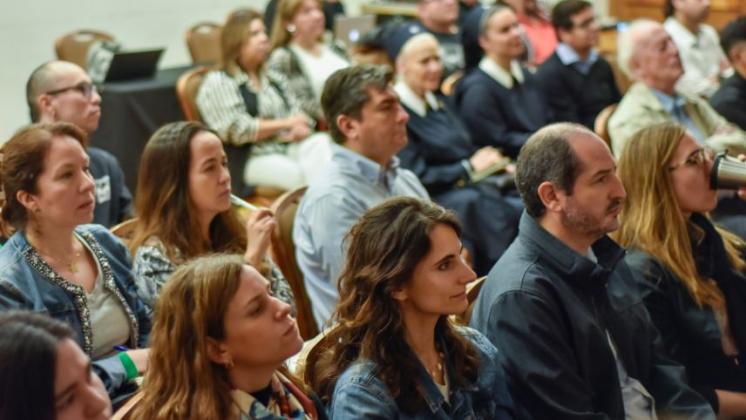CLEAR-LAC and Luksic Foundation Explore How Evaluations Contribute to Fundraising for Civil Society Organizations

In October 2024, the Center for Learning on Evaluation and Results for Latin America and the Caribbean (CLEAR-LAC), an implementing partner of the Global Evaluation Initiative (GEI), held the seminar "Boosting the Third Sector: Evaluation and Fundraising Strategies in Civil Society Organizations" in collaboration with the Luksic Foundation of Chile. The seminar aimed to highlight the importance of evaluating civil society initiatives for resource mobilization and to share best practices.
Silvana Lorenzini, Evaluation Coordinator of Luksic Foundation, opened the seminar by emphasizing that while evaluation may seem obvious, “in practice, we know it’s not that simple, especially in a context where resources are scarce,” particularly for smaller organizations that need resources both to implement their programs and to survive. However, she added that "implementing evidence-based programs is essential; ensuring that what we are implementing is truly making a positive impact, and for that, we need to have an evaluation system or a monitoring system in place." She also highlighted the importance of evaluation as support in the search for resources.
Claudia Castañeda, Executive Director of Trascender Foundation, board member of Global Pro Bono Network, and professor at Universidad Adolfo Ibáñez, explained three practical cases from theory in which outcome indicators have mobilized donors. She pointed out that it is urgent for civil society to focus on outcome indicators to secure funding. “Today, it’s essential to change the way we approach fundraising—not from the perspective of need or lack, but in terms of where every invested or donated dollar is going, because our resources save lives, provide education, and deliver housing,” she said.
Alejandra Canessa, Executive Director of Simón de Cirene Corporation and professor at the Catholic University of Chile, addressed the challenge that smaller civil society organizations face in generating the evidence needed to raise funds. "Our sector today lacks sufficient resources to strengthen itself because, in general, large funders or the state are funding programs that we need to execute, but we don't have the time, space, or resources to train ourselves,” she said. In response to this situation, Ms. Canessa believes a solution is to evaluate at scale, proportionally to the size of the organization and its beneficiaries, and according to the institution’s planning focus.
Rosa Madera, founder and CEO of Empatthy, discussed international trends in fundraising and offered recommendations on how to develop a funding strategy that meets its objectives, as this strategy serves as a bridge between the organization’s values and their implementation. In this regard, she stated that “to have a good fundraising strategy, we must clearly understand our value proposition as a differentiator. On the other hand, working collaboratively through partnerships is essential, and it is also necessary to build donor loyalty by understanding their needs, shifting from a purely transactional approach to a relational one.”
Martha Kluttig, Development Director at CLEAR-LAC, moderated the conversation and highlighted one of the main reflections on civil society, noting that “we must shift from a discourse of need to one more linked to evidence, and also, having data not only helps in fundraising but also in the continuous improvement of the institution itself.” She also added that evaluation is related to “an ethical issue: reporting how resources are being spent and demonstrating that those resources are being put to the best possible use.”
Watch the seminar here.